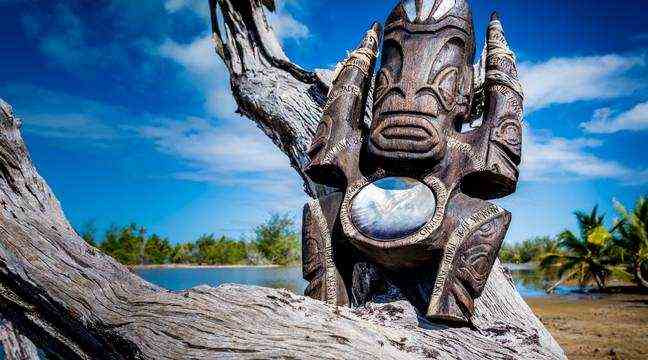Will the term “the posts” ever regain its pre-2001 meaning? That year arrived, rather discreetly, a new TF1 program shot on an island in Thailand: Koh Lanta. Twenty years later, TF1 continues to beat audience records with its adventure game and celebrates its exceptional success with a special edition entitled, very modestly: “The Legend”. In twenty years, Koh Lanta became much more than a TV show and imposed its vocabulary – the test of the poles, the immunity collar, the totem, the irrevocable sentence… – and its grammar – the campfire, reunification, the tests of comfort… – in many interstices of our daily life.
Policies have often used terms borrowed from the game, organizers of birthday or wedding snacks re-use the proofs of the program, HR training in companies use the “values” of Koh Lanta.
“It is the prize for seniority”
“Let Olivier Véran say that there is no totem pole, that Rachida Dati say in a debate that she does not have an immunity collar … Koh Lanta has entered the common vocabulary and the minds of people, ”observes Denis Brogniart. Alexia Laroche-Joubert goes further: “The show is really cult. The term is overused but for Koh Lanta, it really means that, even without talking about the game, you can use the expression “pole test” in everyday life. “
Denis Brogniart has a quantified and implacable analysis: “It is the palm of the seniority. There is no such thing as a twenty-year-old show that earns between 14 and 28 bonuses per year on the biggest channel and which remains the leader. “Virginie Spies, a semiologist specializing in media, agrees with this analysis to which she adds an intimate dimension:” The show entered our lives because television is an everyday object, much more than the cinema. TV is made to be watched at home, an intimate place, and to attract a maximum audience with, therefore, non-divisive programs. “
Images in our brains available
“I think there is not a person in France who can say that she does not know at all Koh Lanta. That doesn’t mean she’s watching, but it’s still a social phenomenon old enough for everyone to know what we’re talking about. », Adds Denis Brogniart. Thus, even an assiduous Arte viewer or a millennial who does without the small screen will know what three buggers are doing perched on poles above crystal clear water. “This is the strength of television, recognizes Virginie Spies. She imposes her images beyond the screen. “
As in any self-respecting social phenomenon, references to Koh Lanta have evolved over time. Take, for example, the corporate world. “For a few years we have had a lot of HR literature,” says Alexandra Parisien, specialist in human resources training. There were team building internships, manager training, things like that, around the values conveyed by the show and applicable to business life: cooperation, surpassing oneself, group strategy, resilience … But for some time now Koh Lanta is no longer totem. “In question, the exacerbated competitiveness on the one hand, which does not always go very well and especially the side” irrevocable sentence “and vexatious eliminations. “The show has become very ambivalent in the minds of people who like to laugh at each other but don’t like their company or their manager to take hold of these codes. “
Children want their immunity collar
Virginie Spies analyzes this turnaround by comparing Koh Lanta to other reality shows. “ Koh Lanta conveys more positive “values” than Loft Story, sure. There is sport, there is mental… But there is also the strategy which has taken an increasingly important part. However, in today’s society, and in companies in particular, it is dangerous to make people speak against each other. “
Quentin and Aurélie, animators and organizers of children’s parties have observed the same turnaround with their own “clients”: “The problem is not the children but the parents, laughs Quentin, who has hosted Breizh Koh-Lanta, this summer on the beaches of Côtes d’Armor. The events are fun but sometimes there is a bad spirit. The dads shout at their kids and it ends in tears… ”It is for this reason that the couple abandoned the theme. Koh Lanta for birthday snacks: “In fact, we have made changes to the events so that it is only collaborative and not competitive,” explains Aurélie. Today, we must not lose the children… ”
Virginie Spies sees in this evolution towards a more civilized society, “a kind of return to The fan school where everyone wins ”, an additional reason for the audience success of Koh Lanta, expiatory spectacle of humans who tear each other apart: “The salt of this program is that people betray each other!” At the campfire, we are in the sociology of group in crisis… ”
Then, Koh Lanta would he be the shattered intimate mirror of our shattered public lives? The reflection in murky water of our bloated egos (cuckoo Narcissus)? “Maybe, or else it’s much simpler than that, slice Virginie Spies. Nicolas Pigasse when he was at Public had found a formula for successful celebrity clichés: “Blue and skin. “ Koh Lanta has that on the program. That and its posts.

